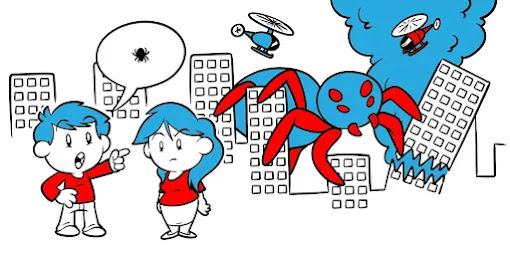Renewable Energy has a serious problem of communication: most people don't understand it. Since all communication is based on storytelling, I propose to face it by using the technique used in storytelling called "Don't tell, show." Telling people that renewables can produce energy is not enough; we need to show that they are useful. And that means focusing on "resilience." (image source)
Years ago, a colleague of mine told me a story about the photovoltaic plant he had installed, one of the first in Italy. He said that a high-rank politician came to visit it. To show him that the plant was really working, my colleague connected its output to a small electric heater, showing how the resistive heating elements could be rapidly brought to a nice red glow. The politician refused to believe that the energy came from the PV panels, and he asked, "Where is the trick?" Apparently, he left still unconvinced.
I have my own stories about this kind of cognitive dissonance, and you probably have yours. Many people don't deny that renewables can produce energy but consider them little more than nice toys for Greens. Come on, to really produce energy, you need to burn something; coal, oil, or gas; you need a big fire and engines turning. Otherwise, it is a joke, no more than that.
You can see this attitude expressed, over and over, in the comments on social media. In its basic form, it goes as, "Renewable energy will never be able to replace fossil fuels." Similar statements are common, including the idea that renewables are not really renewable but "substitutable" or "replaceable," meaning that fossil fuels will always be needed to replace old plants as they wear out. Normally, these statements are presented as self-evident, and some people seem to be offended and to become aggressive when told that the opposite may be true.
Contrasting this attitude using data is nearly impossible. The scientific argument in favor of renewables is mostly based on life cycle analysis (LCA) that currently leads to favorable estimates for their EROI (energy return for energy invested). It means that renewables can be recycled and can sustain a circular economy. But most people (including politicians) don't understand EROI. They don't understand that the uncertainty in the EROI estimates is typical of all scientific matters; they want certainties. The attitude of scientists does not help. They tend to avoid public debates and disseminate their results only as papers in scientific journals. Papers that nobody reads and which are ignored when it is time to make policy choices. It is the same problem we have with climate science.
So, I believe we have to change tack. Since all communication is based on storytelling, we may use a well-known rule in storytelling that says, "Do not tell, show!" That is, it is not enough to tell people about quantitative estimates of this or that. We need to show people how renewable energy can be useful for them here and now, not a hundred years from now,
It is, in the end, a question of positioning: in the current historical phase, renewables can be seen as a tool for resilience, a concept that most people understand and appreciate. Many people interpret this idea in terms of PV panels on their roofs and batteries at home as an emergency supply in case of blackouts. It is not a bad idea in itself, but it is expensive, and many people don't have the kind of space needed to install PV panels. "Resilience" is a wider concept, and, at present, it implies not only a defense against blackouts but a most needed help for people who are facing high energy prices affecting their activities and their personal budgets.
In Italy, we are experimenting with an interesting initiative called "Energy Communities," legislation that allows citizens to link together their energy production plants, forming a local community that gives advantages to both producers and consumers. These communities are on a small scale, but the same concept can be enlarged as a general barrier against emergencies and supply disruption. It is a question of networking at various scales. It also includes large-scale plants; they are certainly more efficient than home-based ones. But they need to be accepted by the public, otherwise it is hopeless.
Framing renewables in this way, we see that we are not aiming at "replacing fossil fuels." It is possible, in principle, but it can't be a short-term goal. If we aim at resilience, we don't need a 100% replacement of fossil fuels. A country like Germany already produces about 50% of its electric energy from renewable sources. At this level, the renewable infrastructure may act as a national-level UPS (uninterruptible power supply), keeping the lights on, and the essential services going (food, transportation, health care, and others). These are achievable objectives in the short and medium term. They are also steps forward to creating a truly sustainable, large scale energy system.
My colleague had chosen the right way to tell the story when he showed a politician how he could operate an electric heater using his PV plant. But that wasn't enough. We need to show that renewables not only produce energy, but produce useful energy for the community. It will also be a concrete set of actions to fight climate change. It is the right path for the future.


